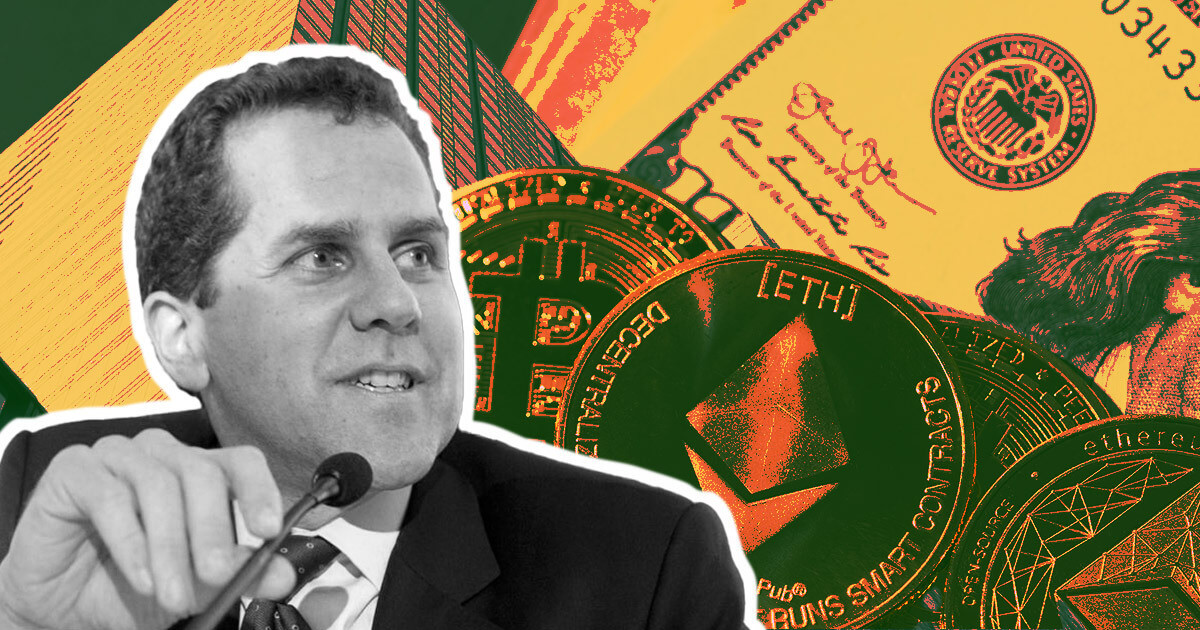The Federal Reserve System’s Vice Chair for Supervision Michael Barr has called on federally regulated banks to be cautious while providing services to crypto firms.
Barr, speaking at DC Fintech Week on Oct. 12, said that the Fed was working hard to find the right balance between promoting crypto market innovation and managing related risks.
With reference to the recent crypto market contagion, the Fed executive urged federally regulated banks to ensure they have appropriate measures in place, to manage crypto-related risks before opting to deal with crypto firms.
Vice Chair Barr noted that although banks are not directly exposed to crypto market losses, the liquidity risks associated with deposit fluctuations may affect their financial stability.
“When a bank’s deposits are concentrated in deposits from the crypto-asset industry, banks may experience deposit fluctuations that are correlated and closely linked to broader developments in crypto-asset markets.”
Barr clarified that the statement was not meant to discourage banks from offering products and services to crypto firms, but to remind them to appropriately manage their risks.
Similarly, the acting head of the OCC Michael Hsu had earlier advised U.S. banks to conduct their crypto-related activities with caution to prevent any contagion that may spill over into the mainstream economy.
Stablecoins risky to the US
Barr went on to argue that the fast-paced adoption of stablecoins could pose a risk to the financial stability of the U.S. economy.
He explained that since dollar-pegged stablecoins borrow their trust from the Fed’s trust, it is important for them to be properly regulated early.
“Over time, stablecoins could pose a risk to financial stability, and it is important to get the regulatory framework right before they do.”
The U.S. Congress is working on a number of bills that will bring regulation to the issuance and usage of stablecoins, particularly as a medium of exchange.
Barr called on banks looking to integrate blockchain solutions into their system, to factor in the associated risk and ensure that their innovations are in compliance with relevant law.
Read More: cryptoslate.com











 Bitcoin
Bitcoin  Ethereum
Ethereum  XRP
XRP  Tether
Tether  Solana
Solana  Dogecoin
Dogecoin  Cardano
Cardano  USDC
USDC  Lido Staked Ether
Lido Staked Ether  Avalanche
Avalanche  TRON
TRON  Shiba Inu
Shiba Inu  Toncoin
Toncoin  Stellar
Stellar  Wrapped stETH
Wrapped stETH  Polkadot
Polkadot  Wrapped Bitcoin
Wrapped Bitcoin  Chainlink
Chainlink  Bitcoin Cash
Bitcoin Cash  WETH
WETH  Sui
Sui  Hedera
Hedera  Litecoin
Litecoin  Pepe
Pepe  NEAR Protocol
NEAR Protocol  LEO Token
LEO Token  Uniswap
Uniswap  Wrapped eETH
Wrapped eETH  Aptos
Aptos  Internet Computer
Internet Computer  USDS
USDS  Cronos
Cronos  Ethereum Classic
Ethereum Classic  POL (ex-MATIC)
POL (ex-MATIC)  Artificial Superintelligence Alliance
Artificial Superintelligence Alliance  Ethena USDe
Ethena USDe  Bittensor
Bittensor  Render
Render  Filecoin
Filecoin  Algorand
Algorand  Arbitrum
Arbitrum  Dai
Dai  Cosmos Hub
Cosmos Hub  Stacks
Stacks  WhiteBIT Coin
WhiteBIT Coin  Immutable
Immutable  Celestia
Celestia